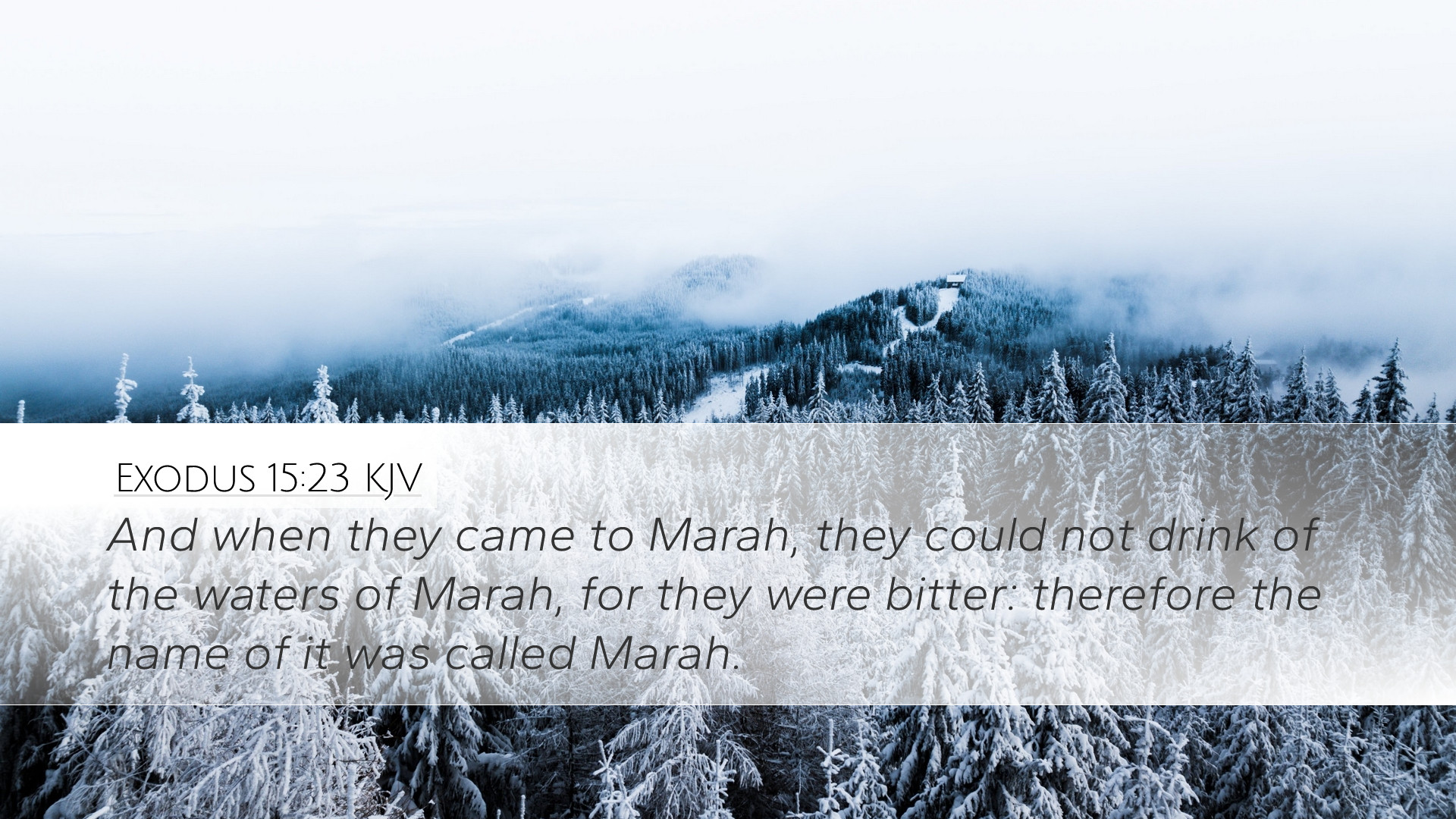Exodus 15:23 - Summary and Commentary
Bible Verse: "When they came to Marah, they could not drink the waters of Marah, for they were bitter; therefore it was named Marah."
Introduction
This verse occurs shortly after the Israelites' miraculous crossing of the Red Sea and the song of praise led by Moses and Miriam (Exodus 15:1-21). Their journey takes them into the wilderness of Shur, where they encounter difficulty at Marah. This moment not only bears historical significance but also serves as a rich theological lesson about faith, complaint, and divine provision.
Contextual Analysis
The narrative highlights a vital transition for the Israelites: from liberation to the harsh realities of their journey towards the Promised Land. Their experience at Marah illustrates the challenges of faith amid trials.
1. Journey and Expectations
The worship of the Israelites after their deliverance reveals a high point of faith. However, it quickly wanes when faced with the bitter waters of Marah. This juxtaposition between their joyful praise and immediate despair serves to remind believers of the fragility of faith when confronted with trials.
2. The Nature of Marah
The name ‘Marah’ itself means “bitterness,” directly reflecting the condition of the waters and the hearts of the people. Henry notes that the difficulty faced by the Israelites was not merely physical; it was deeply spiritual, as the bitterness of their experience mirrored their state of mind.
Theological Reflections
This incident at Marah is emblematic of the spiritual journey of believers. It prompts crucial theological reflection on themes such as suffering, God’s sovereignty, and divine provision.
1. Suffering and Discontent
- Human Nature: Barnes emphasizes human nature's proclivity towards discontent, especially in difficult times. The complaints of the Israelites reveal a deeper distrust in God's plan, reflecting the struggles many experience in their walk of faith.
- Testing of Faith: Clarke suggests that moments of bitterness are often divine tests. They reveal what is within us and can refine our faith through adversity.
2. God’s Provision in Difficulties
Just as the Israelites faced immediate bitterness, God’s subsequent provision demonstrates His unwavering faithfulness. The Lord leads them from bitterness to healing, a theme that resonates throughout biblical narrative.
- God's Purpose: Henry notes that God allowed the Israelites to encounter Marah not merely to punish, but to teach them reliance on His provision.
- Healing Waters: The later divine instruction to Moses about throwing a certain tree into the waters signifies the transformational power of obedience, where bitterness can become sweetness through divine intervention.
Lessons for Pastors and Theologians
This passage speaks powerfully to the hearts of pastors, students, and scholars alike:
- Hope in Hardships: Pastors are encouraged to share how faith can persist amid trials, reminding congregations that moments of Marah are common but purposeful.
- Encouragement to Examine Hearts: Theological reflection invites believers to examine their responses in crises, fostering resilience and growth in spiritual maturity.
- Role of Community: Understanding communal experiences of bitterness during life's journey reinforces the necessity of church support, highlighting the shared burden and joy in Christ.
Conclusion
Exodus 15:23 serves as a profound reminder of the duality of faith: joy can quickly give way to despair when faced with adversity. However, it is through these trials that believers gain deeper insights into God’s provision and faithfulness. From bitter waters, there are lessons of dependency, obedience, and the hope of healing that resonate for all who seek to understand the trials of faith along their spiritual journey.


